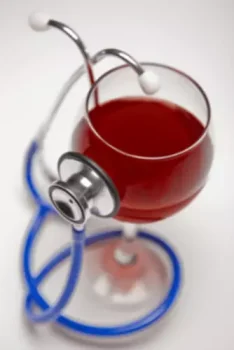
Instead, these secondary effects happen as a result of having FAS. Children born with this syndrome experience the symptoms throughout their entire lives. Some symptoms can be managed with treatment by a healthcare provider, but they won’t go away. Fetal alcohol syndrome happens when a person drinks any alcohol during pregnancy, including wine, beer, hard ciders and “hard liquor”. One reason alcohol is dangerous during pregnancy is that it’s passed through your bloodstream to the fetus through the umbilical cord. The baby doesn’t metabolize (break down) alcohol in the same way an adult does – it stays in the body for a longer period of time.
More on Health & Pregnancy
If you drink alcohol and are pregnant, it is imperative that you stop immediately. Alcohol crosses from the placenta into the fetus and impairs fetal development. Seek prompt medical care from a treatment center or other trained professionalsif you are pregnant and unable to stop drinking alcohol.
Dealing with behavioral issues
This team may include a doctor or pediatrician with experience diagnosing FASDs, a psychologist, a speech-language therapist, and an occupational therapist. Although there is no treatment for FAS, there are strategies that can improve its symptoms. If you are consuming alcohol and trying to become pregnant or you are currently pregnant, reach out to a healthcare provider for help quitting. To diagnose someone with FAS, the doctor must determine that they have abnormal facial features, slower than normal growth, and central nervous system problems.
- A discussion of the patient’s at risk alcohol use can be woven into your assessment of clinical issues and management options.
- But early intervention services may help lessen some of the challenges of fetal alcohol syndrome and may help prevent some secondary disabilities.
- “Many exhibit increased irritability, jitteriness, impaired cognition with poor executive planning and functioning, difficulties with impulse control,” he says.
- This begins one to three days after the last drink and may continue up to 10 days.
- The rates of alcohol use, FAS, and FASD are likely to be underestimated, because of the difficulty in making the diagnosis and the reluctance of clinicians to label children and mothers.
Diagnosis of FAS
There is no safe amount or type of alcohol that is guaranteed to prevent FASDs, which is why it is important that people who are trying to conceive or who are pregnant stop drinking as soon as they can. Don’t start an alcohol celebrities with fetal alcohol syndrome elimination program without telling your healthcare provider. They may be able to direct you to further options for achieving your goals and provide the medical care that may be necessary to withdraw from alcohol.
Diagnosis of FASDs
FASDs can affect how a child’s body, behavior, and brain develop as they grow up, and these effects can last throughout a person’s life. Fetal alcohol syndrome is caused by alcohol consumption during pregnancy. Drinking during pregnancy, no matter how small the amount, can harm the fetus and impair its development. When you consume alcohol, it crosses the placenta into the fetus.

I don’t think my talking about drinking is going to make a difference to the patient.
Diagnosing fetal alcohol syndrome involves an exam from a healthcare professional with expertise in the condition. Early diagnosis and services can help improve your child’s ability to function. If you are pregnant and can’t stop drinking alcohol, ask your obstetrician, primary care doctor or other healthcare professional for help. A social worker can direct you to community programs that offer help, for example, Alcoholics Anonymous. If you suspect your child has fetal alcohol syndrome, talk to your doctor or other healthcare professional as soon as possible.
What are treatments for FASDs?
“Further, toxic byproducts formed from the process of breaking down alcohol can build up in the fetus’s brain and cause damage, » she adds. This article explores the various aspects of FASDs, including the types, symptoms, causes, diagnosis, treatment, and support. FASD is completely avoidable if you do not drink alcohol while you’re pregnant. For example, they may have difficulties with learning, have challenging behaviours, mental health problems, and find it difficult to get a job and live independently as an adult. Treatment focuses on controlling the symptoms of the condition.
Goal of Fetal Alcohol Treatment
As a fetus’s liver is not fully formed, this organ cannot metabolize alcohol. As a result, when a fetus becomes exposed to alcohol, they absorb all of it. However, with early identification and support, children with FAS can learn important skills that can aid their development.
Alcohol crosses from the placenta into the womb and impairs fetal development. Reach out to a healthcare provider if you think a child within your care might have fetal alcohol syndrome. Early supportive services can help increase their quality of life.
